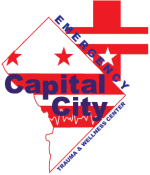How Employees Can Advocate for Better Workplace Mental Health
JCheang
Fri, 02/26/2021 – 12:16
By Taylor Adams, Director of Workplace Mental Health at Mental Health America
Mental Health America (MHA) recently released its Mind the Workplace 2021 Report to highlight the mental health challenges that employees across company size and industry have experienced during the COVID-19 pandemic. The data is staggering – employees need more mental health supports at work. As an employee, it may feel like you do not have a lot of control over workplace mental health. However, there are things you can do! If you want to help improve mental health in your workplace, here are four ideas to consider:
Understand your workplace culture.
Workplace culture reflects an organization’s missions, values, and norms. Culture also dictates how informed or invested your company is in improving workplace mental health. Does your manager or your coworkers talk about mental health at work? Is leadership receptive to employee feedback? Did your company take employee well-being into account when responding to COVID-19? Would you describe your workplace as toxic with a capital “T”? Asking yourself these questions will help you better understand your company culture and identify the areas that need the most improvement. To help get started, the questions asked in MHA’s Work Health Survey might help you initially frame your company culture.
Listen to and understand your coworkers’ needs.
Need mental health accommodations, not self-care packages? Need benefits that cover mental health services, not a training? There is often a discrepancy between what leaders think employees need and what employees actually need. For example, employers may offer an app to manage stress, but what employees really want is to feel accepted and connected with coworkers. Stress management tools serve an important purpose, but it is more important that the employer understands what tools or supports are needed. If your employer is not taking the initiative to understand employees’ needs, you can kickstart the process by closely listening and learning from your coworkers. Chances are they share many of the same concerns and stressors as you.
Consider joining or establishing an Employee Resource Group for mental health.
Once you understand your company’s culture and specific needs, the next logical step is to organize a group of like-minded people and form an Employee Resource Group (ERG), working group, committee, or team. Recruit members who bring different perspectives, including race, gender, those with lived experience, and different levels within the organization. Focus on integrating mental health support and resources, in addition to bringing awareness within the organization. Opportunities to integrate resources include new hire orientation, management training, or professional development. Coordinate potential activities, responsibilities, and budget with HR and Employee Assistance Program (EAP), if possible. Finally, consider connecting with mental health organizations in your community. Many organizations offer workplace resources and training at little- to no-cost. A great place to start is with MHA’s 200+ Affiliate network.
Connect with leaders who are willing to listen.
A mental health movement can begin with one motivated and compassionate employee. Finding a leader within the organization who is willing to listen can turn thoughts into action. Many organizations have a designated wellness coordinator or HR representative to connect with about your concerns and goals. A place to start may be sharing MHA’s Mind the Workplace 2021 Report. A successful ERG should have the ability to:
request a budget that covers the costs to improve workplace mental health;
outline clear expectations and allocate work hours for ERG’s responsibilities;
provide feedback to upper management about findings or recommendations; and
communicate regularly with management about anticipated changes based on the team’s feedback.
Want to learn more? Please check out the following articles at www.mhanational.org/workplace:
How Can Employees Promote Mental Health in the Workplace?
How Can Leadership Support Employees Who Promote Mental Health?







